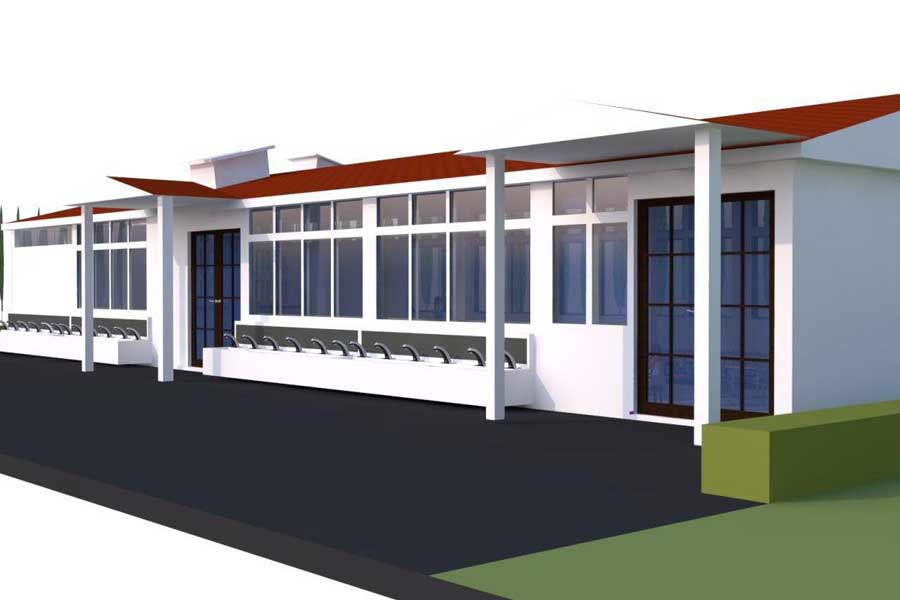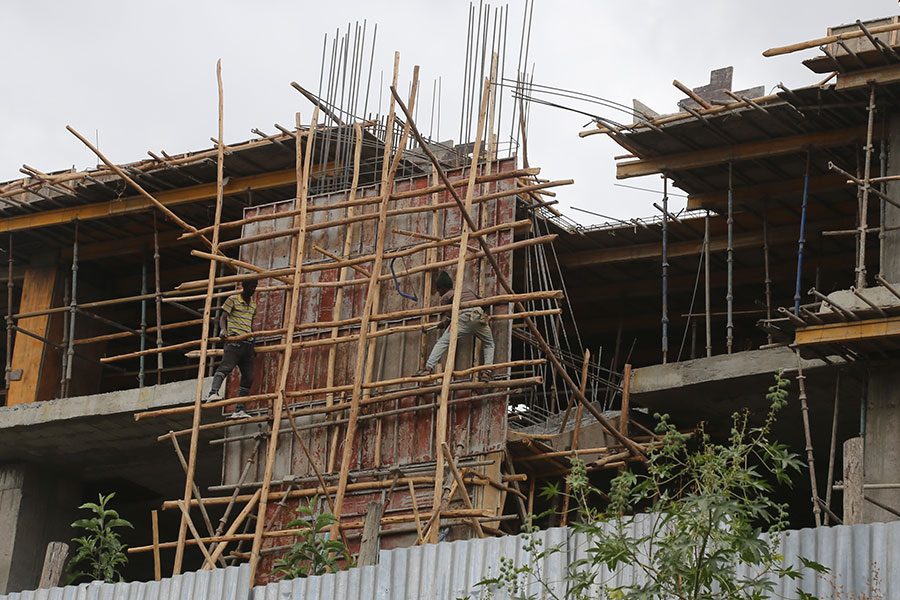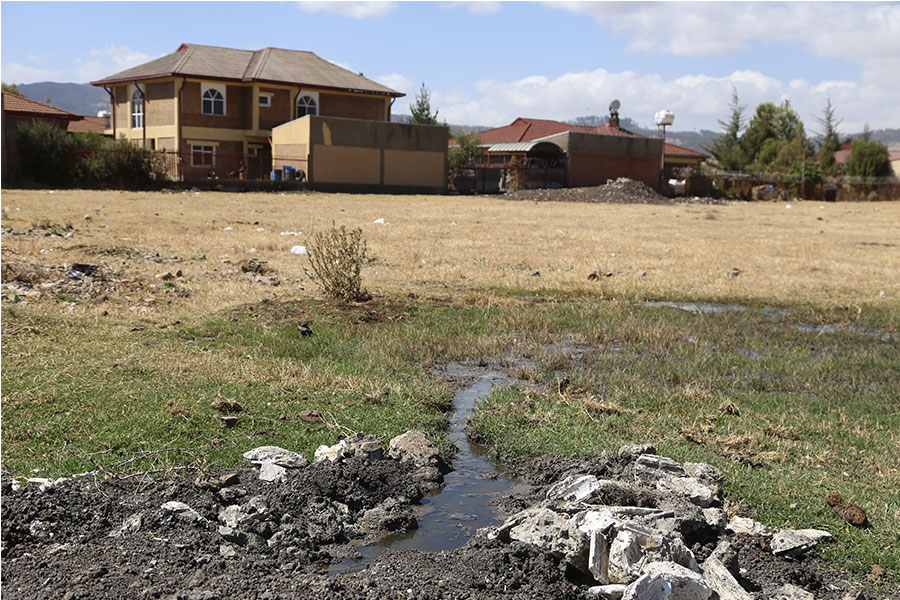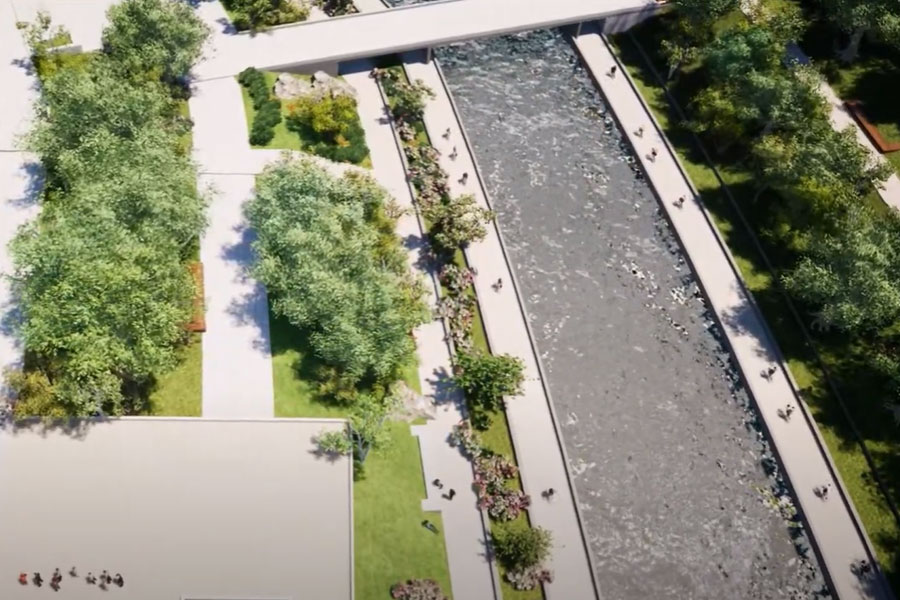
Viewpoints | Feb 17,2024
Dec 24 , 2022
By Robel Mulat
Despite the low urbanisation level and sporadic growth, the federal government has recently made enormous efforts to beautify the urban public space. These projects stir concerns about spatial inequalities, power monopolies and priority dilemmas in a metropolis that already struggles with severe sanitation, water, housing, and transportation constraints.
It causes a conflict of interest among different parties about the use of public space. In most cities, these conflicting interests are described from investors' perspectives and the state rather than citizens, particularly street vendors, the homeless, elders, and children. Massive beautifying projects have been launched in Addis Abeba, Hawassa, Bahir Dar and other cities after Prime Minster Abiy Ahmed came to office. Building green infrastructure along lakes, mountains, and streets is now a top focus for city officials.
Experts indicate that cities undergo significant changes due to demographic pressure and environmental problems. By offering ecosystem services and the advantages of those services, green infrastructure is a conventional and preferred strategic planning method that can handle and adapt to these difficulties. However, most of these urban activities conflict with the meaning and the actual function of public space. Scholars argue that space is built and modified by society in an urban setting. Furthermore, these spaces are open and accessible for everyone without differences.
Hawassa, for instance, demonstrates how public space changes into state control mechanisms in the name of prosperity or modernisation.
After the Italians were routed in May 1941, Emperor Haile Sellassie, who had been in exile in England, returned and resumed his systematic campaign to assert his vision of modernisation. Young students were sent overseas for higher studies, and more schools were opened. The Ministry of Interior hired administrators from all tiers of government sectors.
Salaried civil servants collected taxes, and new secondary cities were furnished. When the Emperor visited the Sidama region in 1957, he was astounded by the stunning geography. He ordered the implementation of what was then a new master plan. Taking the assignment, the then Mayor, Mengesha Seyoum (Ras), laid the groundwork for the city's rapid socioeconomic and extensive infrastructure developments and the current master plan. Hence the foundation for the contemporary look of the town.
The unprecedented political upheaval in 2018 did not only change the country's leadership; instead, it gave a new status to Hawassa. The city is the seat of the recently established Sidama regional states. It had spent the previous few months planning to demonstrate for visitors travelling there to commemorate nations, nationalities, and people's day how this political success transformed into urban development.
New green corridors, street billboards and walkway renovation have all been built in the city centre.
Regardless of its well-renowned tourist destinations, the recent public megaprojects and private investments are transforming the city into an industrial hub.
The beautifying projects have two primary features: top-down or state-led approaches. This will impact the project's sustainability and public ownership in the future. It leads to spatial inequities. Low-income people lose the right and capacity to own property once the state begins to administer and regulate it. It also weakens the social ties that bind residents together and may even progressively erect social hierarchies.
The priority dilemma is the project's second challenge. Despite the significant financial and resource investments, urban inhabitants face harsh and pressing economic realities and good governance difficulties. Major cities have been dealing with severe water and housing shortages over the last few decades. Due to high rates of rural-to-urban migration and an inadequate urban strategy, cities are becoming a source of many problems.
While those initiatives unquestionably benefit city residents and the regions, they cannot directly address the community's pressing concerns about unemployment and cost of living pressure. Achieving beautification will not result in significant advancements in well-being for the city and its residents.
PUBLISHED ON
Dec 24,2022 [ VOL
23 , NO
1182]


Viewpoints | Feb 17,2024

Fortune News | Feb 20,2021

Sunday with Eden | Oct 05,2024

View From Arada | Apr 13,2019

My Opinion | Jun 29,2024

Featured | Mar 23,2019

Fortune News | Sep 23,2023

Fortune News | Jan 22,2022

Commentaries | Nov 27,2018

Life Matters | Oct 05,2024

My Opinion | 131819 Views | Aug 14,2021

My Opinion | 128203 Views | Aug 21,2021

My Opinion | 126147 Views | Sep 10,2021

My Opinion | 123767 Views | Aug 07,2021

Dec 22 , 2024 . By TIZITA SHEWAFERAW
Charged with transforming colossal state-owned enterprises into modern and competitiv...

Aug 18 , 2024 . By AKSAH ITALO
Although predictable Yonas Zerihun's job in the ride-hailing service is not immune to...

Jul 28 , 2024 . By TIZITA SHEWAFERAW
Unhabitual, perhaps too many, Samuel Gebreyohannes, 38, used to occasionally enjoy a couple of beers at breakfast. However, he recently swit...

Jul 13 , 2024 . By AKSAH ITALO
Investors who rely on tractors, trucks, and field vehicles for commuting, transporting commodities, and f...

Jul 5 , 2025
Six years ago, Ethiopia was the darling of international liberal commentators. A year...

Jun 28 , 2025
Meseret Damtie, the assertive auditor general, has never been shy about naming names...

Jun 21 , 2025
A well-worn adage says, “Budget is not destiny, but it is direction.” Examining t...

Jun 14 , 2025
Yet again, the Horn of Africa is bracing for trouble. A region already frayed by wars...

Jul 6 , 2025 . By BEZAWIT HULUAGER
The federal legislature gave Prime Minister Abiy Ahmed (PhD) what he wanted: a 1.9 tr...

Jul 6 , 2025 . By YITBAREK GETACHEW
In a city rising skyward at breakneck speed, a reckoning has arrived. Authorities in...

Jul 6 , 2025 . By NAHOM AYELE
A landmark directive from the Ministry of Finance signals a paradigm shift in the cou...

Jul 6 , 2025 . By NAHOM AYELE
Awash Bank has announced plans to establish a dedicated investment banking subsidiary...